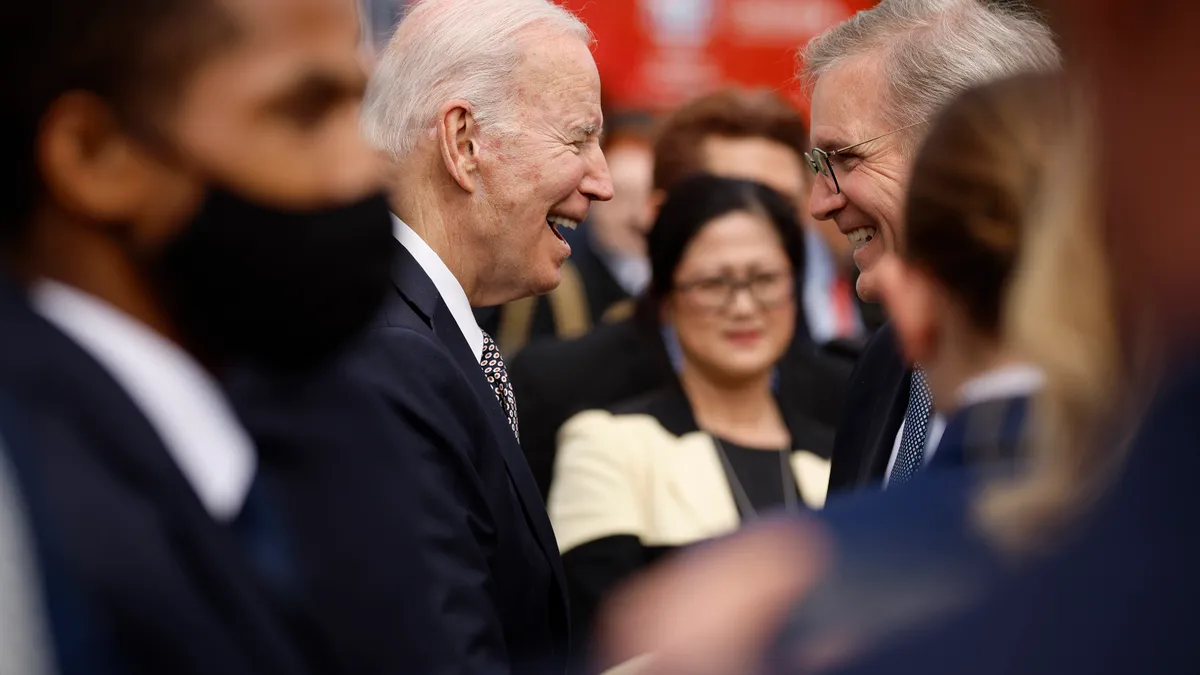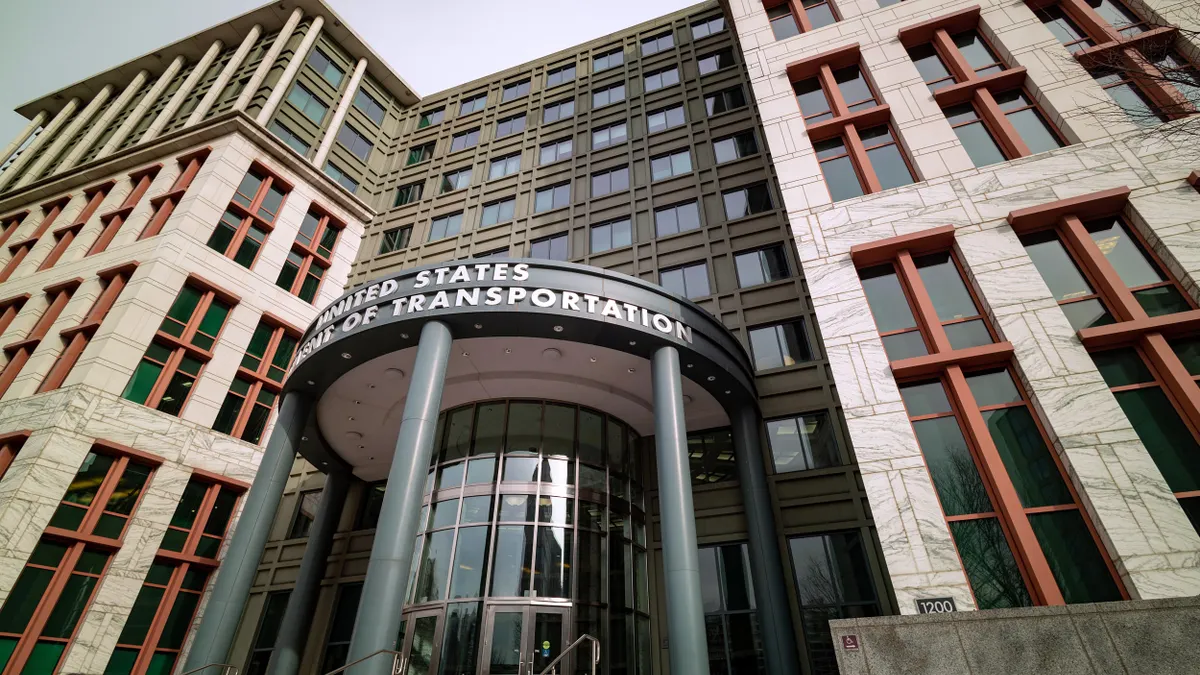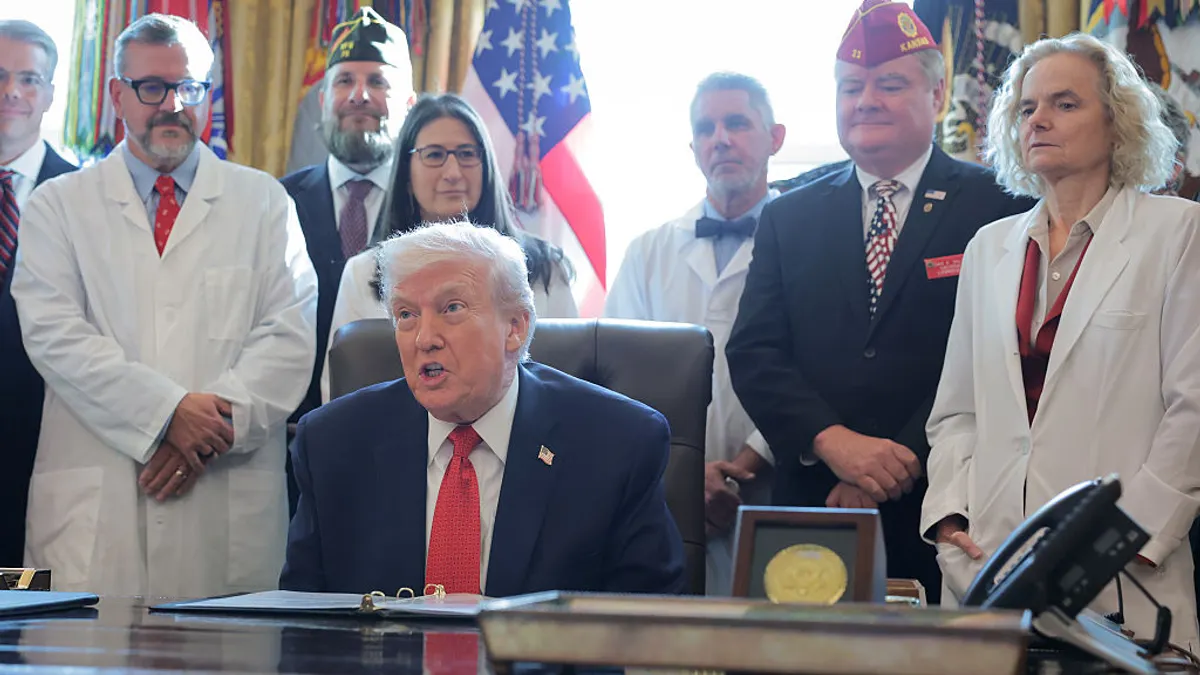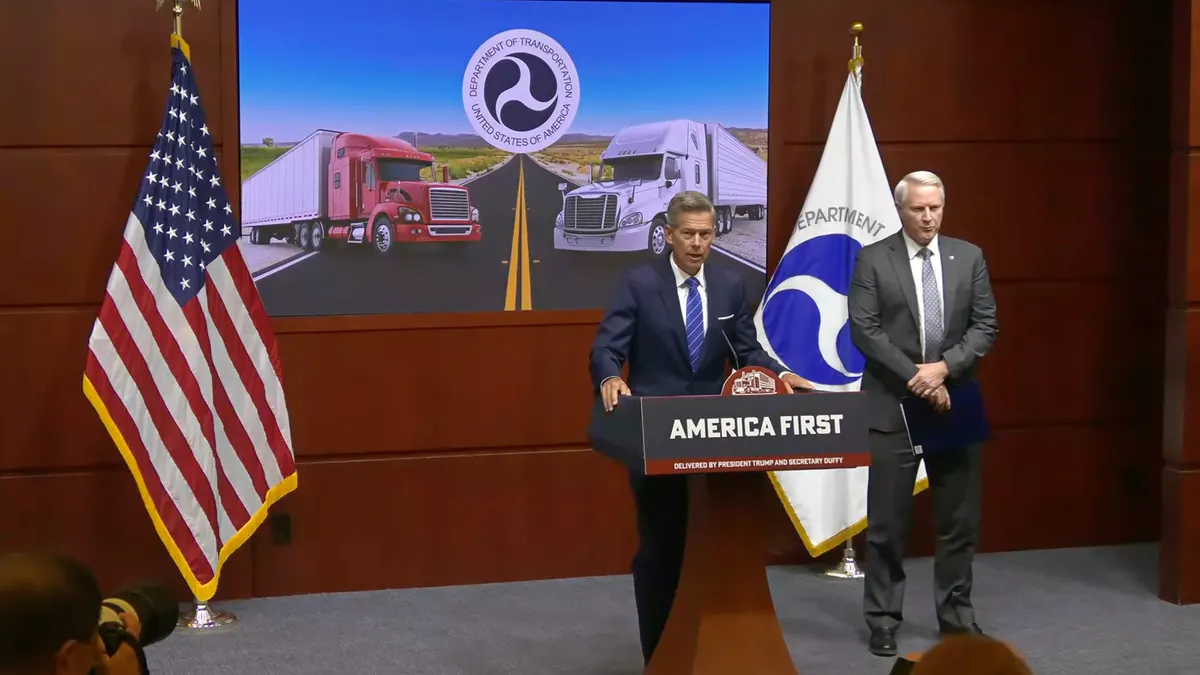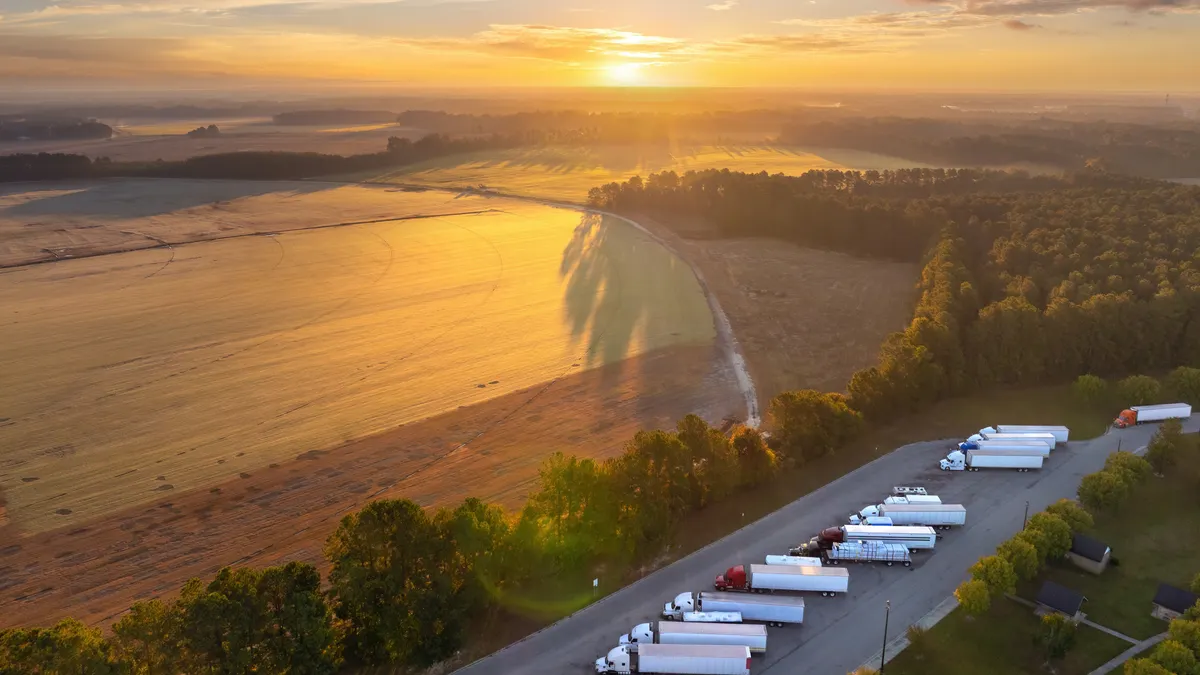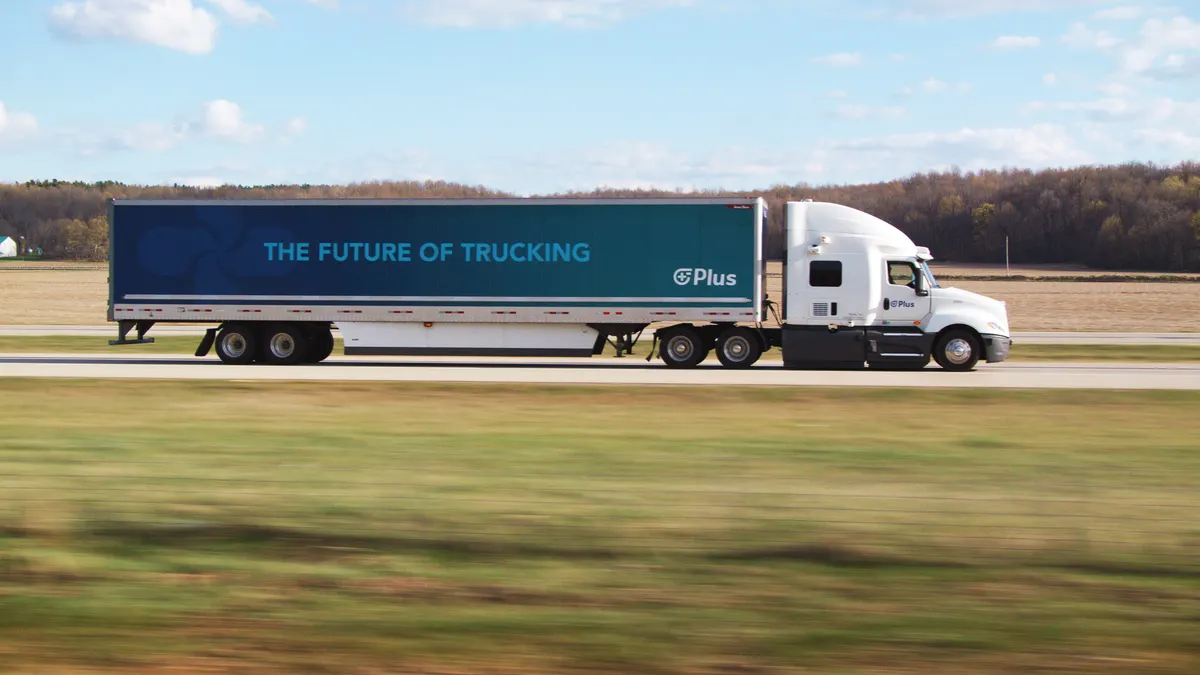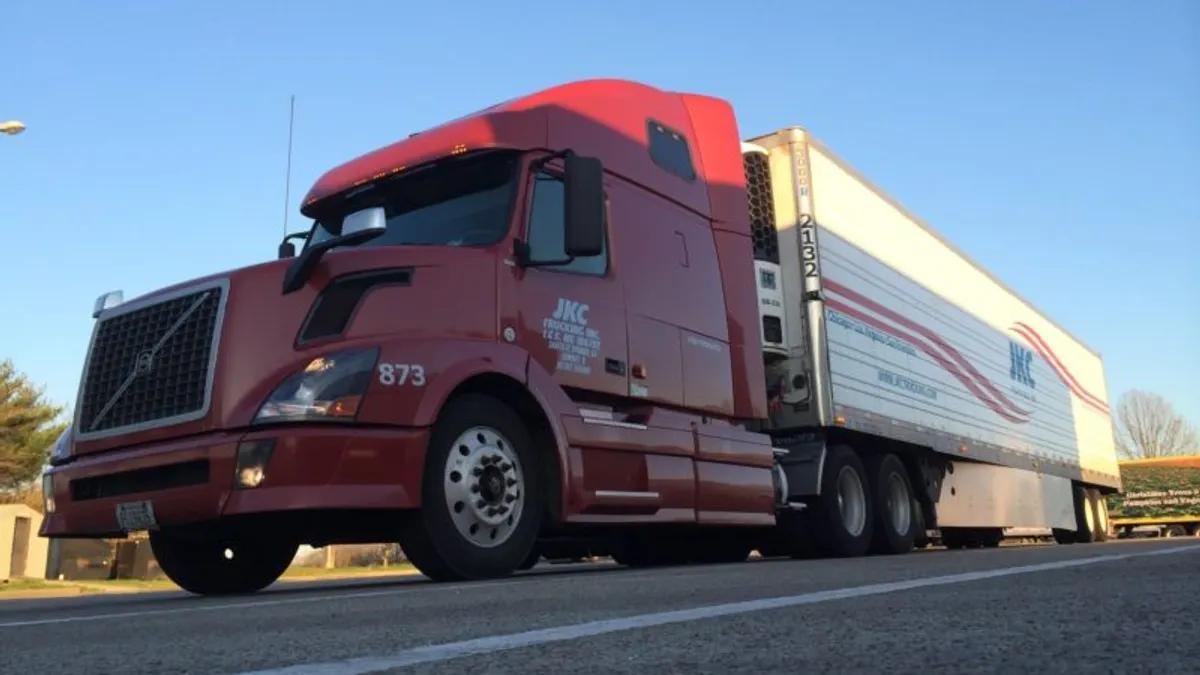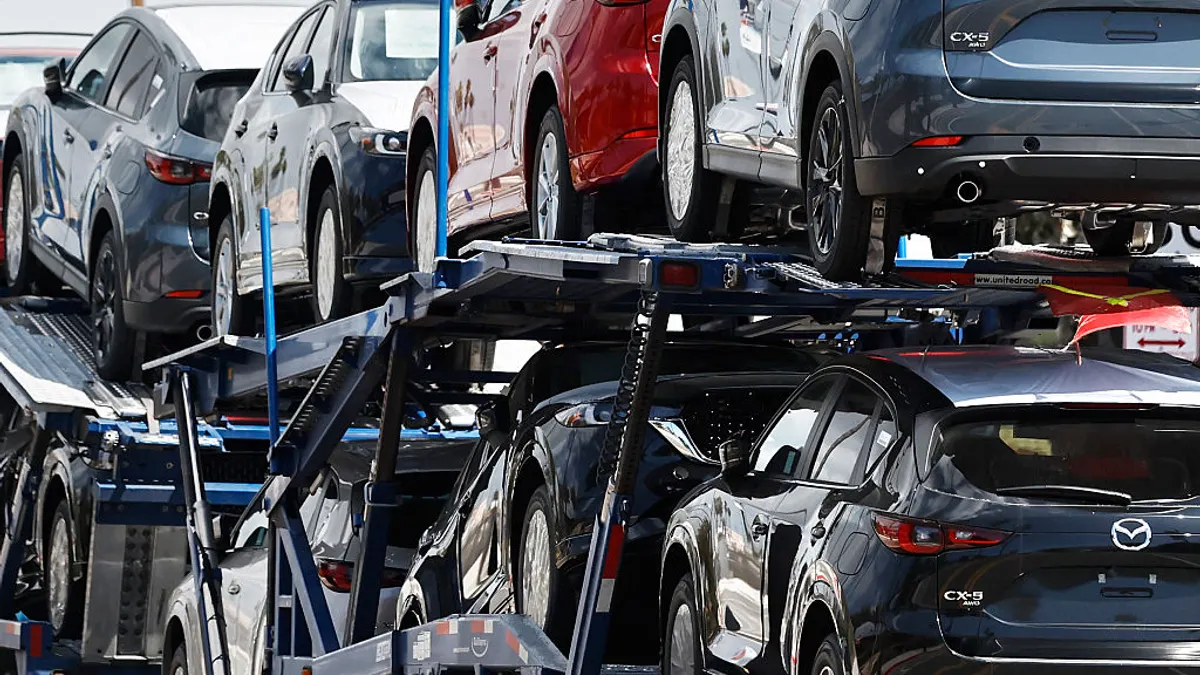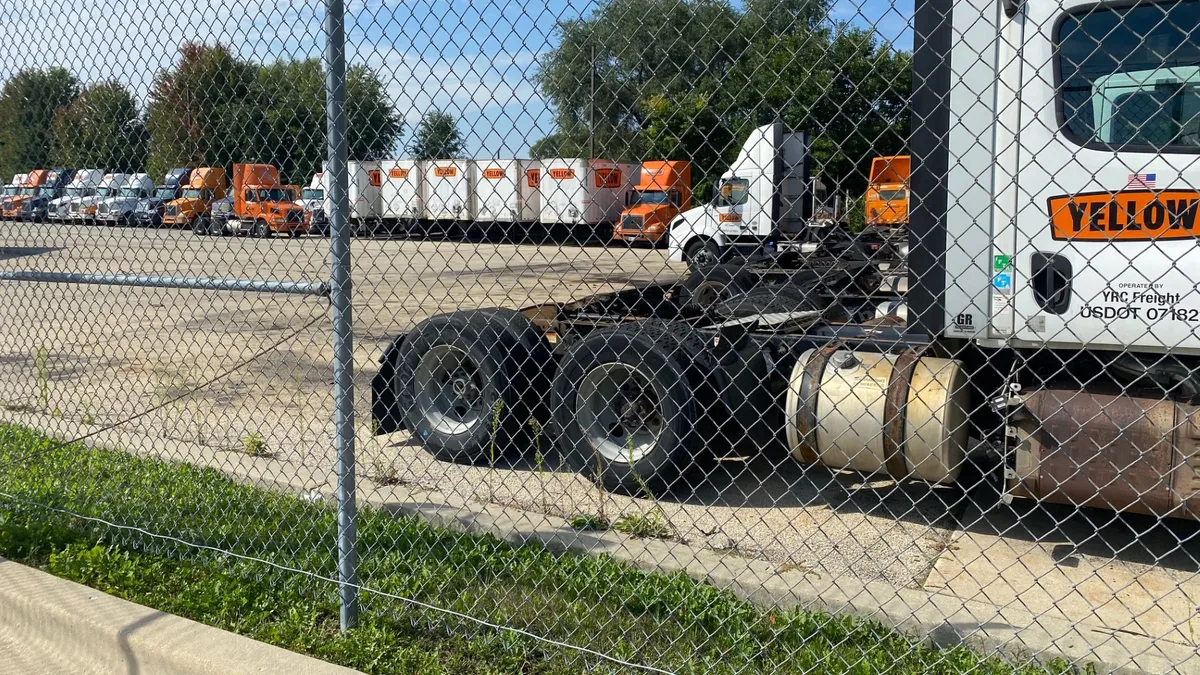The economy, emissions regulations and a legal battle over truck-only tolls in Rhode Island will have the trucking industry’s attention in 2023.
American Trucking Associations leaders shared insights from the past year and their expectations for the coming one during the final day of the trucking industry’s largest annual conference in San Diego in October.
ATA President Chris Spear, Chair Dan Van Alstine and immediate past Chair Harold Sumerford Jr. sat for a roughly 20-minute interview at the ATA Management Conference & Exhibition at the San Diego Convention Center.
Editor’s note: This interview has been edited for clarity and brevity.
TRANSPORT DIVE: If the economy is not as strong in the coming year, how will the industry respond?
VAN ALSTINE: We're an industry that frankly, in the past, hasn't done well with prosperity. When we think things are great, we go ahead and invest heavily in growth. And we've been limited by that in the last couple of years. So, there's the reality of limited capacity, both in terms of human capital as well as OEM trucks, trailers. But I think we're in an industry that's more disciplined, as well. We're going to go through these tough times, and I think there's going to be a trucking economy and there's going to be a broad U.S. and global economy. I don't believe the trucking economy is going to be nearly as severe as what we might see elsewhere.
What will it take for trucking to navigate the shifting terrain for emissions regulations and equipment?
VAN ALSTINE: The journey is incredibly complex and you can't be mal-aligned, which it feels, with the California Air Resources Board, that's where we are. Somehow they believe we don't have the same objective of being a partner in trying to create a more clean and more green environment. Sure, we can work with our OEMs and they can build a truck that can go 500 miles, but if there is no infrastructure to be able to charge it on the very tactical level, that’s the mal-alignment that I’m talking about. And the mandates and these moonshots that they're forcing on us are not the right way to go. Again, we're fully aligned with wanting to do the right thing, but let's do it collaboratively. And let's set goals and objectives that we share. The journey is incredibly complex. And if we're going to go alone, if they're just mandating, dictating, and that's what we have to do, you lose opportunities to share data with other countries, with other industries. Unfortunately, I feel from my personal opinion, that's kind of where we're starting.
SUMERFORD: We heard today from a young lady with a small trucking company, 150 trucks. She made the comment that, whatever avenues we take to meet these goals, if it's wrong, it could potentially bankrupt her. That hit the nail on the head. There's a lot of people, they’ve got one shot at making the right decision on technology. And right now, quite frankly, I just don't think it's there. So, it's going to have to come around quick. And when you do things quickly, you can generally have trouble. We all remember there used to be a little, small company called Caterpillar that made trucks. They’re not here anymore.
What are trucking’s goals for next year?
SPEAR: We are always thinking well ahead. The lawsuit abuse, with the 11 states teeing up, is going to continue to post wins. I think positioning on the environmental, we have a live reg on the EV timeline and targets at EPA. We have speed limiters that are probably going to get posted by the end of the year — 16,000 comments, so it's taking the FMCSA some time. And I think there's some stuff in there with the job training, including this 18-to-20 pilot that now apparently came out with inward facing cameras. That’s got a few people frustrated, because it wasn't in the law, and they put it in. So we’ve got some work to do next year, small to big, that I think is going to continue to demonstrate to our membership that this is a good place to put their money. I’m proud of that.
VAN ALSTINE: Having the long view of all of these challenges, I think, is so critically important. There have certainly been some significant wins this year. But if we look at the kind of the genesis of Rhode Island, it started so many years ago, and Chris and the team have done a phenomenal job of just making sure that we're seeing things for the long horizon. Because many times that big win that's off, three or four years away, has come because there's been a number of smaller victories. And those milestones are important because you want to take some time to celebrate and continue the momentum. I certainly hope we have some tier-one victories, but I think, most likely, we're going to see a whole number of really small victories that are continuing to move us forward on the bigger victories.
SPEAR: I’d go so far to say that Rhode Island could come to this appeal, probably — I'm really hoping that we can get it done in ‘23 and decided and reimbursed, and not have it spill into ‘24. I’ll defer to ATA General Counsel Executive Vice President for Legal Affairs Rich Pianka on that. He's the expert on that timeline. But you know, we do agree that we will win this.


